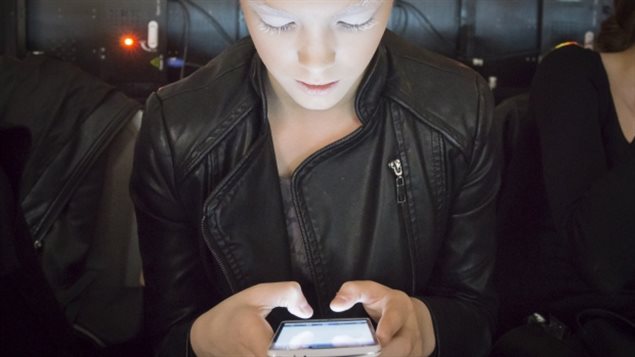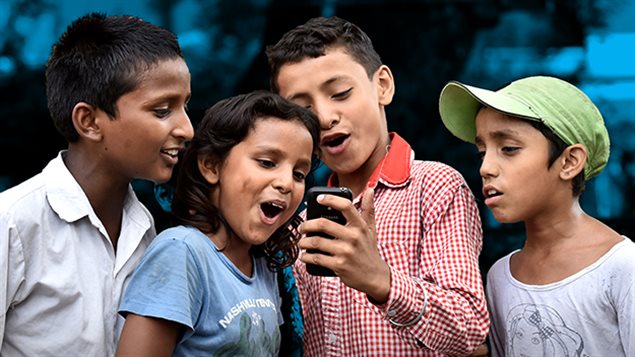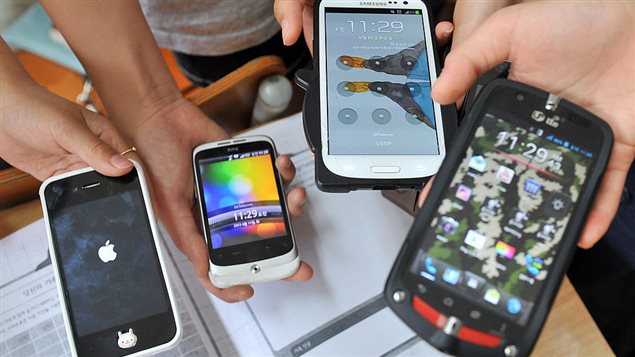Apple and other smartphone producers need to do more to fight addiction to these ubiquitous devices among children, says a Canadian global affairs analyst and a former spokesperson for UNICEF.
Michael Bociurkiw’s call comes as two major Apple investors – California State Teachers’ Retirement System and Jana Partners – are demanding the company double up on its efforts to fight iPhone addiction among children.
To support their case the two investors are citing a growing body of research showing that over-immersion in smartphones, usually meaning more than a couple of hours of screen-time-per-day, can lead to depression, lack of sleep, difficulty concentrating and even suicide, said Bociurkiw, who has penned an opinion piece on the subject for CNN.com.
(click to listen to the interview with Michael Bociurkiw)
Listen“Research is also showing that among these kids who adopt this technology very early on that they are showing some interesting but worrying signs,” Bociurkiw said in a phone interview from his home in Sydney, British Columbia.
“For example, they have problems concentrating, they show less empathy and then get this: they’re also showing problems reading their parents’ facial expressions. Imagine they grow up and the can’t tell the difference between happiness or sadness.”

Depression and obesity are also being attributed to immersion in screens, he said.
“Imagine the long-term impact on eyesight, sleep and posture of children who start looking at screens at too early an age,” Bociurkiw said.
The situation is especially acute in low-income families, where more than half of babies aged two are using smartphones and tablets.
The average North American teenager spends about five hours a day on their phones not including talking and texting, Bociurkiw said. This as most research says the healthy maximum should be one to two hours a day, he said.
However, smartphone addiction and harmful impacts of digital technology are no longer just a problem of developed countries.

In its recent annual flagship publication the State of the World’s Children, UNICEF took the unprecedented step of dedicating its entire report to the impact of digital technology on children worldwide, he said.
UNICEF points out, the proliferation of smartphones is fueling a “bedroom culture” where children are using devices unsupervised in the their rooms, exposing them to potential online predators and bullying.
Bociurkiw says, however, it’s not only Apple’s responsibility to help protect children from overusage of these devices.
“I think it’s a multi-stakeholder approach,” Bociurkiw said. “Parents obviously need to get involved, manufacturers, software makers and others to help solve this problem.”
However, time is not on our side, Bociurkiw argues.
“The alarm on these problems has been sounded I think way too late,” Bociurkiw said.
Grownups need to start setting an example by practising digital etiquette, especially in front of their children.
“If you’re coming home after a long work day, your kids are waiting for you, don’t run through the front door with your device to your ear,” Bociurkiw said. “Put it away, spend quality time with your kids because kids do take their cues from their adults, from people who are looking after them and if this what they see, this type of behaviour from early on, then they may very well start picking up these habits.”







For reasons beyond our control, and for an undetermined period of time, our comment section is now closed. However, our social networks remain open to your contributions.